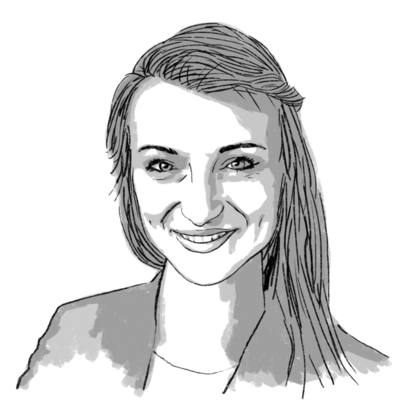Error loading media: File could not be played
00:0000:0000:00
00:00
 Eva Botkin-Kowacki
Eva Botkin-Kowacki
In today’s issue, our five hand-picked stories explore the drawbacks of an unwritten constitution, the role of unions in the 2020 election, what counts as hate speech, the limitations of assumptions, and how a library has expanded its purpose.
But first, a rise in interest in the complexity of our oceans has had a tangible impact this week.
Mako sharks – the “cheetahs of the ocean” – gained international protections, along with several other shark species. Eels, sea cucumbers, queen conchs, marine turtles, some corals, sturgeons, and sea horses were also added to the list. Fishing of those species is not banned, but any trade now must be sustainable. These new protections probably wouldn’t have happened without recent shifts in public perceptions of the ocean.
Our relationship with the ocean is often framed by our limited ability to interact with this watery world, leaving us with a misperception that the ocean is static and simple. This summer, my colleague Amanda Paulson and I have explored this dynamic, charismatic ecosystem through “Peering into the deep,” a five-part series on the ocean.
While reporting the series, I challenged myself to adjust my own perception of the ocean. I’ve tried to take time to simply observe and soak in whatever I might experience. One moment in particular stands out to me.
To report the final installment (an audio story in today’s issue), audio producer Rebecca Asoulin and I spent four hours sitting on a dock, observing. As night fell, the water came alive in ways I never imagined possible. A bunch of crabs larger than my fist scuttled across the surface looking for tasty morsels. It was a magical moment – a brief window into the marine world – that I would have missed if I hadn’t opened my mind to the unexpected.

Our name is about honesty. The Monitor is owned by The Christian Science Church, and we’ve always been transparent about that.
The Church publishes the Monitor because it sees good journalism as vital to progress in the world. Since 1908, we’ve aimed “to injure no man, but to bless all mankind,” as our founder, Mary Baker Eddy, put it.
Here, you’ll find award-winning journalism not driven by commercial influences – a news organization that takes seriously its mission to uplift the world by seeking solutions and finding reasons for credible hope.
Explore values journalism About us